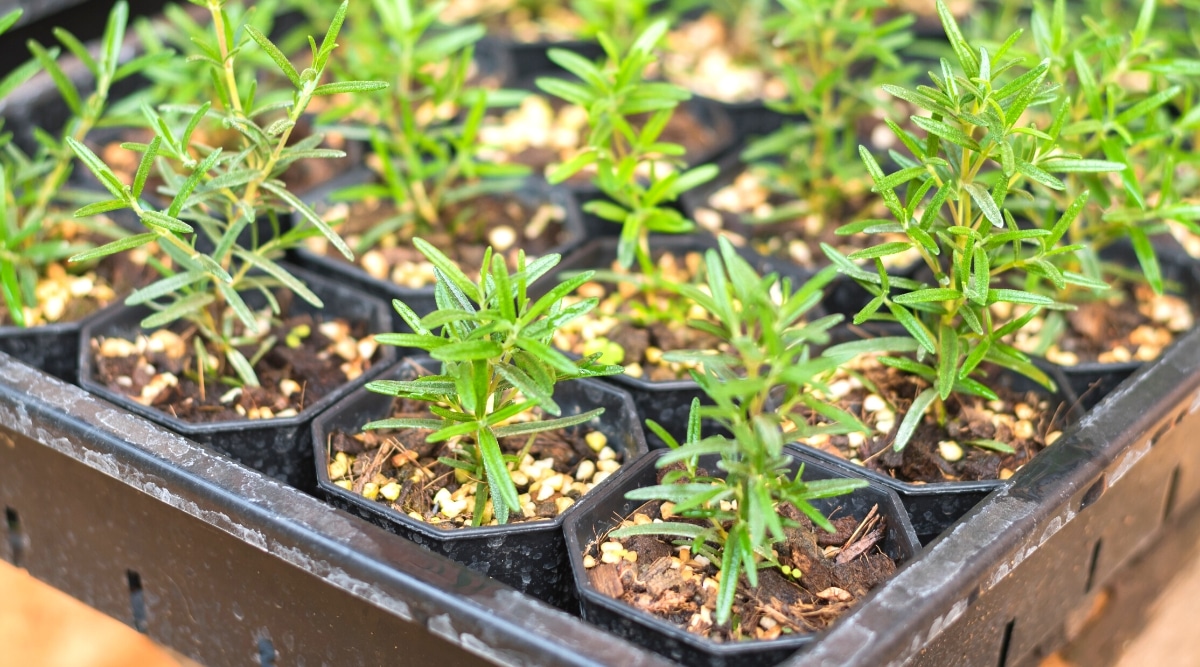Home>Types of Gardening>Edible Gardening>How Long Does Rosemary Water Last?


Edible Gardening
How Long Does Rosemary Water Last?
Published: February 1, 2024
Discover how long rosemary water lasts and get expert tips on edible gardening. Enhance your gardening skills and maximize the use of rosemary.
(Many of the links in this article redirect to a specific reviewed product. Your purchase of these products through affiliate links helps to generate commission for Chicagolandgardening.com, at no extra cost. Learn more)
Table of Contents
Introduction
Welcome to the wonderful world of edible gardening! Growing your own food can be a rewarding and fulfilling experience, and one of the most popular categories in edible gardening is herbs. Among the various herbs, rosemary stands out for its distinct aroma, delightful flavor, and numerous health benefits.
Rosemary water is a versatile concoction that can be used in a variety of ways, from culinary purposes to skincare routines. This infusion is typically made by steeping rosemary leaves in water, allowing the herb’s natural oils and flavors to infuse into the liquid.
But how long does rosemary water actually last? Like any other liquid, it has a shelf life, and understanding its lifespan is crucial to ensure its freshness and effectiveness. In this article, we will explore the shelf life of rosemary water, the factors that can affect its longevity, proper storage techniques, and how to determine if the water has gone bad.
Whether you are using rosemary water for cooking, as a natural remedy, or for its aromatic properties, understanding its shelf life will ensure you get the most out of this amazing herb.
What is Rosemary Water?
Rosemary water is a herbal infusion made by steeping fresh or dried rosemary leaves in water. This simple yet powerful concoction captures the essence and benefits of the rosemary plant. Known for its distinct fragrance and flavor, rosemary has been used for centuries in various cultures for culinary, medicinal, and cosmetic purposes.
When rosemary leaves are steeped in water, the liquid absorbs the herb’s essential oils, antioxidants, and other beneficial compounds. The resulting rosemary water can then be used in a myriad of ways.
One popular use of rosemary water is in cooking. It adds a unique and savory flavor to dishes, particularly in Mediterranean and Italian cuisines. Rosemary water can be used as a marinade for meat, a base for salad dressings, or simply as an aromatic ingredient in soups and stews.
Beyond its culinary uses, rosemary water has many health benefits. It is rich in antioxidants, which help protect the body against free radicals and oxidative stress. These antioxidants have been linked to improved digestion, enhanced brain function, and a strengthened immune system. Rosemary water is also believed to have anti-inflammatory properties and can aid in relieving digestive issues, reducing anxiety, and promoting hair and scalp health.
In addition to its culinary and medicinal uses, rosemary water is a popular ingredient in skincare products. Its natural astringent properties make it an excellent toner to tighten the skin and minimize pores. It is also used in homemade facial mists, face masks, and hair rinses to rejuvenate and nourish the skin and scalp.
Remember, rosemary water is not to be confused with rosemary essential oil. While both are derived from the rosemary plant, the water is a milder and diluted version, whereas the essential oil is highly concentrated and requires careful dilution before use.
Shelf Life of Rosemary Water
The shelf life of rosemary water can vary depending on various factors, including how it is prepared, stored, and the quality of the ingredients used. On average, homemade rosemary water can last for about one to two weeks when stored properly.
It is important to note that commercially packaged rosemary water may have a longer shelf life due to additional preservatives or the use of sterilization methods. Always check the label or packaging for specific storage instructions and expiration dates.
The freshness and potency of rosemary water can gradually decline over time, so it is best to use it within the recommended time frame to ensure optimal flavor and benefits. However, it is worth mentioning that the flavor and aroma may start to fade after a few days, but the water can still be used in various applications.
It is also important to mention that the shelf life of rosemary water can be extended by freezing it. Freezing rosemary water in ice cube trays can help preserve its freshness and flavor for several months. Simply transfer the water into the ice cube trays, freeze until solid, and then transfer the cubes into a labeled freezer bag for easy use in the future.
While it is possible to store rosemary water for longer periods, it is recommended to make small batches as needed to ensure the highest quality and freshness. This allows you to enjoy the full benefits of rosemary water at its peak.
Next, let’s explore the factors that can affect the shelf life of rosemary water and how to properly store it to maintain its quality and potency.
Factors Affecting the Shelf Life of Rosemary Water
Several factors can influence the shelf life of rosemary water. It is essential to understand these factors in order to effectively extend the freshness and quality of the infusion.
1. Quality of Ingredients: The quality of the rosemary leaves used to make the water can greatly impact its shelf life. Fresh and high-quality leaves will yield a more potent and longer-lasting infusion compared to dried or wilted leaves. It is always recommended to use fresh rosemary for the best results.
2. Method of Preparation: The way rosemary water is prepared can also affect its shelf life. Properly washing and cleaning the rosemary leaves beforehand removes any dirt or debris that can accelerate spoilage. Additionally, using sanitary equipment and techniques during the preparation process minimizes the chance of introducing harmful bacteria into the infusion.
3. Storage Conditions: Storing rosemary water correctly is crucial to prolong its shelf life. The infusion should be stored in a clean, airtight container to prevent exposure to air, moisture, and contaminants. Ideally, store it in the refrigerator, as cold temperatures slow down the growth of bacteria and help retain freshness. Avoid storing rosemary water near strong-smelling foods, as it can absorb odors and impact the taste and aroma.
4. Exposure to Light: Light can degrade the quality of rosemary water and shorten its shelf life. It is important to store the infusion in a dark or opaque container to protect it from exposure to sunlight. Alternatively, store it in a pantry or cupboard away from direct light sources.
5. Contamination: Proper hygiene and handling are critical in maintaining the shelf life of rosemary water. Always use clean and sterilized utensils, containers, and equipment when preparing and storing the infusion. Avoid touching the water directly with your hands, as it can introduce bacteria. If any signs of contamination, such as mold or off-putting smell, are observed, discard the water immediately.
By taking these factors into consideration and implementing proper storage practices, you can significantly extend the shelf life of rosemary water and ensure you can enjoy its benefits for as long as possible.
Proper Storage of Rosemary Water
Proper storage of rosemary water is crucial to maintain its freshness, flavor, and potency. By following these guidelines, you can ensure that your rosemary water stays delicious and effective for an extended period.
1. Use an Airtight Container: Transfer the rosemary water to a clean, airtight container after preparing it. Glass jars or bottles with screw-top lids or rubber seals are excellent choices. Ensure that the container is thoroughly washed and sterilized before use to prevent contamination.
2. Refrigerate the Rosemary Water: Rosemary water should be stored in the refrigerator to maintain its quality. The cold temperature helps inhibit the growth of bacteria and slows down the oxidation process. Keep the container away from the door and towards the back of the refrigerator for consistent cooling.
3. Keep Rosemary Water Away from Light: Light exposure can degrade the quality and potency of rosemary water. Store the container in a dark area, such as a pantry or cupboard, to protect it from direct sunlight. Alternatively, use an opaque or dark-colored container to shield the water from light.
4. Avoid Cross Contamination: To prevent the transfer of flavors and odors, store rosemary water away from strong-smelling foods or substances. It is best to keep it in a separate area of the refrigerator or in a different cupboard to maintain its original taste and aroma.
5. Label and Date the Container: To keep track of the freshness and shelf life of the rosemary water, label the container with the date it was prepared. This will help you determine when it is time to use or discard the water to ensure optimal flavor and potential benefits.
6. Only Take Out What You Need: When using rosemary water, avoid exposing the entire container to air unnecessarily. Instead, take out the required amount and promptly return the rest to the refrigerator. This minimizes the exposure to oxygen and helps preserve the quality of the remaining water.
Remember, proper storage practices are essential for maintaining the quality and longevity of rosemary water. Following these guidelines will ensure that you can enjoy the refreshing and aromatic infusion for an extended period.
Signs of Spoiled Rosemary Water
Knowing the signs of spoiled rosemary water is important to ensure your safety and to prevent the consumption of contaminated or ineffective infusion. While rosemary water has a relatively short shelf life, there are several telltale signs that indicate it has gone bad:
1. Foul Odor: If the rosemary water has a strong, unpleasant odor that is different from its normal herbal fragrance, it is likely spoiled. A rancid or sour smell suggests the growth of bacteria or the oxidation of the infusion.
2. Mold Formation: The presence of mold in the rosemary water indicates contamination. Mold can appear as fuzzy patches or discolored spots on the surface of the water. If you notice any mold growth, the water should be discarded immediately.
3. Discoloration: A change in color, such as browning or a cloudy appearance, is an indication that the rosemary water has deteriorated. This discoloration could be due to the oxidation of the infusion or the growth of bacteria.
4. Strange Texture: A spoiled rosemary water may develop an unusual or slimy texture. This slimy consistency can be a result of bacterial growth or the breakdown of the infusion components.
5. Off Taste: If the rosemary water tastes off or has an unpleasant, bitter, or sour taste, it is an indication of spoilage. The change in taste is often due to the presence of bacteria or the oxidation of the infusion.
It is important to note that consuming spoiled rosemary water can lead to foodborne illnesses or other adverse reactions. Therefore, it is recommended to err on the side of caution and discard any water that shows signs of spoilage.
Regularly inspect your stored rosemary water for any of these signs and discard it if you have any doubts about its freshness or safety. It is always better to make a fresh batch of rosemary water rather than risk consuming spoiled or contaminated infusion.
Conclusion
Rosemary water is a versatile infusion that brings the delightful aroma and numerous benefits of rosemary to various applications. Understanding its shelf life and proper storage techniques is essential to maximize its freshness and potency.
Homemade rosemary water typically lasts for about one to two weeks when stored correctly in a clean, airtight container in the refrigerator. Factors such as ingredient quality, preparation method, storage conditions, exposure to light, and contamination can affect its shelf life.
By using fresh rosemary leaves, practicing good hygiene during preparation, and storing it in the refrigerator in a dark and airtight container, you can prolong the shelf life of your rosemary water. Avoiding cross-contamination and using proper labeling can also help preserve its flavor and aroma.
It is important to be aware of the signs of spoiled rosemary water, which include foul odor, mold formation, discoloration, strange texture, and off taste. If any of these signs are present, it is best to discard the water to prevent any potential health risks.
To make the most of your rosemary water, it is advisable to make small batches as needed and freeze any excess in ice cube trays for later use. This way, you can enjoy the benefits of rosemary water even after its natural shelf life.
So, whether you’re using rosemary water in your cooking adventures, for skincare purposes, or to experience the aromatic pleasure it offers, with proper storage and attention to signs of spoilage, you can savor the freshness and benefits of rosemary water to the fullest.









